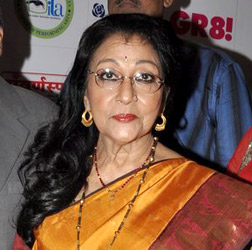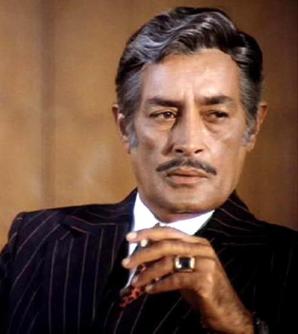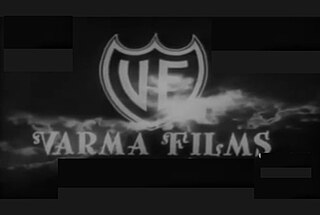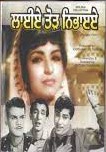
Raj Kapoor was an Indian actor, film director and producer, who worked in Hindi cinema. He is considered one of the greatest and most influential actors and filmmakers in the history of Indian cinema, and has been referred to as The Greatest Showman of Indian Cinema and as the Charlie Chaplin of Indian Cinema.

Alda Sinha, better known by her stage name Mala Sinha, is a former Indian actress who has worked in Hindi, Bengali and Nepali films. Initially starting her career with regional cinema, she went on to become a top leading actress in Hindi Cinema in the late 1950s, 1960s and early 1970s. In a career spanning four decades, Mala Sinha rose to prominence with films like Guru Dutt's Pyaasa (1957) and Yash Chopra's Dhool Ka Phool (1959). Later, she starred in over hundred film productions including Phir Subah Hogi (1958), Hariyali Aur Rasta, Anpadh, Dil Tera Deewana (1962), Gumrah, Bahurani, Himalay Ki God Mein (1965), Aasra (1966), Ankhen, Do Kaliyan, Maryada (1971). She was known as the "daring diva" and "torch bearer of women's cinema" for essaying strong female centric and unconventional roles in a range of movies considered ahead of their times. Having received multiple awards and nominations, she was given the Filmfare Lifetime Achievement Award in 2018.

Randhir Raj Kapoor is a retired Indian actor, film producer and director who worked in Hindi cinema.

Madan Puri was an Indian actor of Hindi and Punjabi films. His brothers were actors Chaman Puri and Amrish Puri. As a character actor mainly in negative roles (villain), he acted in about 430 films in a career spanning above fifty years.
Shashikala Saigal, better known by her first name, was an Indian film and television actress, who played supporting roles in hundreds of Bollywood films beginning in the 1940s.

Iftekhar Ahmed Sharif, often mononymously credited as Iftekhar or Iftikhar, was an Indian actor who mainly worked in Hindi cinema. He is known for his film roles as a police officer.
Aarop is a 1974 Indian Hindi romance film, laced with crime and suspense, directed by Atma Ram, who is the brother of the legendary film maker Guru Dutt, who made intense films with powerful social themes. Atma Ram completed many of Guru Dutt's films after his mysterious suicide. The writers were Vrajendra Gaur (dialogue) and Ram Govind (screenplay). The film stars Vinod Khanna, Saira Banu and Vinod Mehra in pivotal roles and Rehman as villain. Bhupen Hazarika scored the music for lyrics penned by Maya Govind. The song "Naino mein darpan hai, darpan mein koi.." by Kishore Kumar and Lata Mangeshkar is still quite popular.

Kidar Nath Sharma, also Kedar Sharma, was an Indian film director, producer, screenwriter, and Lyricist of Hindi films. While he had great success as a director of movies including Neel Kamal (1947), Bawre Nain (1950) and Jogan (1950), he is most remembered for starting the acting careers of popular Bollywood actors like Madhubala, Geeta Bali, Raj Kapoor, Mala Sinha, Bharat Bhushan and Tanuja.

Kumkum,, was an Indian actress.
Nishi Kohli is an Indian former actress who has worked in Punjabi and Hindi-language films. She frequently acted with Dara Singh.

Leela Mishra was an Indian actress. She worked as a character actor in over 200 Hindi films for five decades, and is best remembered for playing stock characters such as aunts. She is best known for her role of "mausi" in the blockbuster Sholay (1975), Dil Se Mile Dil (1978), Baton Baton Mein (1979), Rajesh Khanna films such as Palkon Ki Chhaon Mein, Aanchal, Mehbooba, Amar Prem and Rajshri Productions hits such as Geet Gaata Chal (1975), Nadiya Ke Paar (1982) and Abodh (1984). Her career's best performance was in Naani Maa in 1981, for which she received Best Actress award at the age of 73.
Indrani Mukherjee is an Indian actress who worked in Hindi films during the 1960s and 1970s and starred in over 70 films. After playing the heroine in some films, notably Usne Kaha Tha (1960) and Aakhri Khat (1966), she moved to playing character roles which were central to the film and made this her forte. Her roles in films like Dharam Veer (1977), Parvarish (1977) and Des Pardes (1978) were the pivot of the storyline, but they were not conventional heroine roles. Each of the movies were a success at the box office.

Bela Bose was an Indian dancer and actress who was active in Hindi films during the 1960s and 1970s.

Zulm-O-Sitam is a 1998 Indian Hindi-language action film directed by K. C. Bokadia. The film stars Dharmendra, Shatrughan Sinha, Jaya Prada, Arjun Sarja, Madhoo, Mukesh Khanna and Danny Denzongpa in the lead roles. It marked Bokadia's third collaboration with Dharmendra after Kundan (1993) and Maidan-E-Jung (1995) and fifth with Jaya, who apart from Kundan and Maidan-E-Jung, had also starred in Aaj Ka Arjun (1990), Tyagi (1992) and Insaniyat Ke Devta (1993) which were directed by Bokadia.

Varma Films was a film production and distribution company founded in Bombay, India. The company was predominantly involved in producing and distributing Hindi-language films and to a lesser extent distributing some Italian-language films with English subtitles in India.

Ankh Micholi is a 1962 Bollywood film directed by Ravindra Dave and starring Mala Sinha in the lead role with Shekhar, S. Nazir, Jagdish Raj, Leela Mishra and Naazi in supporting roles. The film was distributed and produced by Varma Productions, an affiliate of Varma Films. Ankh Micholi marked the second time its filmmakers had cast Mala Sinha in a lead role after previously casting her in Main Nashe Mein Hoon (1959). Both Ankh Micholi and Main Nashe Mein Hoon are considered to be some of the most "memorable films" of Mala Sinha.

''Laiye Tod Nibhiye'' is a 1966 Punjabi-language film directed by Satish Chabbra and starring Nishi and Ravindra Kapoor in the lead roles with Gopal Sehgal, Sheela R and Ravi Khanna in supporting roles. The film was distributed and produced by Varma International Pictures. It was produced by Krishan Lal Varma, son of Biharilal Varma, one of the founders of Varma Films. Previously Nishi, who played the lead female role in Laiye Tod Nibhiye had worked in supporting roles in three films produced by Varma Films and its affiliates: Baghi Sipahi (1958), Night Club (1958) and Main Nashe Mein Hoon (1959). Laiye Tod Nibhiye marked the first time Nishi had been cast in a lead role in a film associated with the Varma family.













